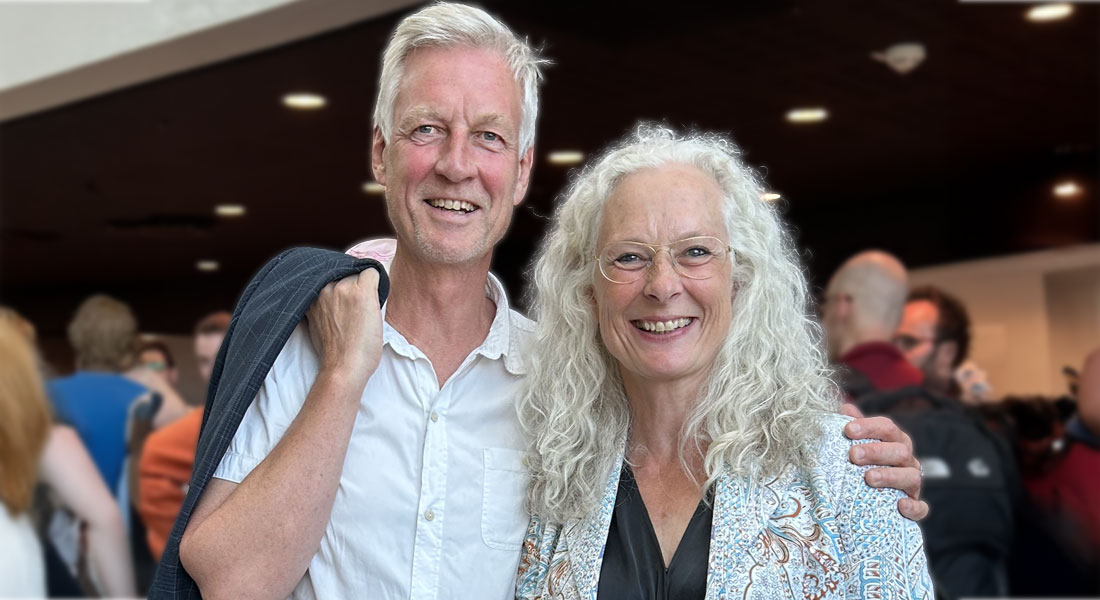It stays in the family – Villum grant for Susanne and Peter Ditlevsen
Siblings and professors Susanne and Peter Ditlevsen receive Villum Synergy grant to investigate the critical tipping point of AMOC – Atlantic Meridian Overturning Circulation.

One of the most debated climate tipping points is the potential collapse of AMOC – the Atlantic Meridional Overturning Circulation – a system of ocean currents that distributes heat across the Atlantic.
The Gulf Stream, familiar to us in northern latitudes, is a central part of AMOC, which is also referred to as the "great ocean conveyor belt" because it transports warm surface water from the tropics northward and cold deep water from the North Atlantic southward.
If AMOC collapses, it would have major implications for the global climate.
One consequence could be colder weather in our part of the world, while Africa might face even higher temperatures. Recent studies suggest that such a collapse could occur sooner than previously thought.
A few years ago, the two grant recipients – who are also siblings – published a paper that received surprising attention. They introduced a completely new way of approaching the AMOC problem.
Using a purely statistical method, they started from the premise that AMOC has two states – and therefore a tipping point. However, large climate models disagree significantly on where this tipping point lies.
A tipping point where order breaks down
Susanne Ditlevsen explains that this opens up a whole field of research that has yet to be explored – and this is where the Villum grant comes in.
- One goal of the project is to determine whether more data can be found that fits the new method.
- Another goal is to incorporate the uncertainty that always exists in data. Statistical models can be developed to estimate data uncertainty, helping to reduce it.
- A third goal is to tackle the extreme complexity inherent in analyzing ocean currents.
Statistical models tend to assume that things are “neat” – static, linear, and orderly. But a tipping point is precisely where order breaks down. This paradox might be resolved by developing new statistical methods that can capture “the singular point where statistical linearization is no longer possible,” says Susanne.
This broadens the scope of the project, as a newly developed statistical method capable of capturing the fundamentally different structure of a tipping point could also be applied to many other areas – not just climate models.
The project plans to hire two postdocs and three PhD students – both physicists and statisticians – who will work closely together. Both Peter and Susanne will supervise and organize retreats, and the entire group will collaborate with colleagues at MATH and NBI, as well as with the international network the two professors are part of.
Contact
Peter Ditlevsen, Professor
E-mail: pditlev@nbi.ku.dk
Telephone: +45 35 32 06 03
Mobile: +45 28 75 06 03
Susanne Ditlevsen, Professor
E-mail: susanne@math.ku.dk
Telephone: +45 35 32 07 85
